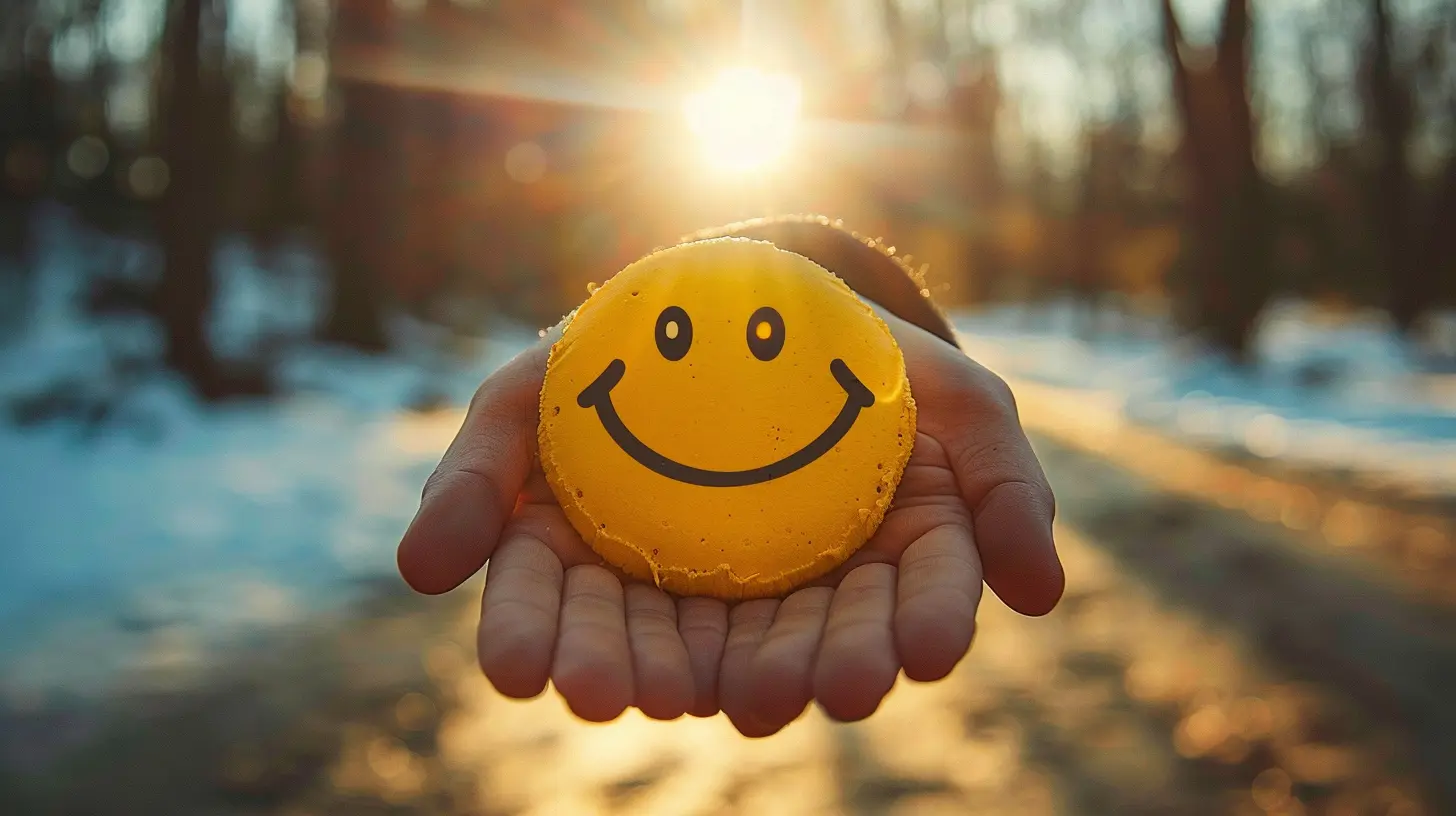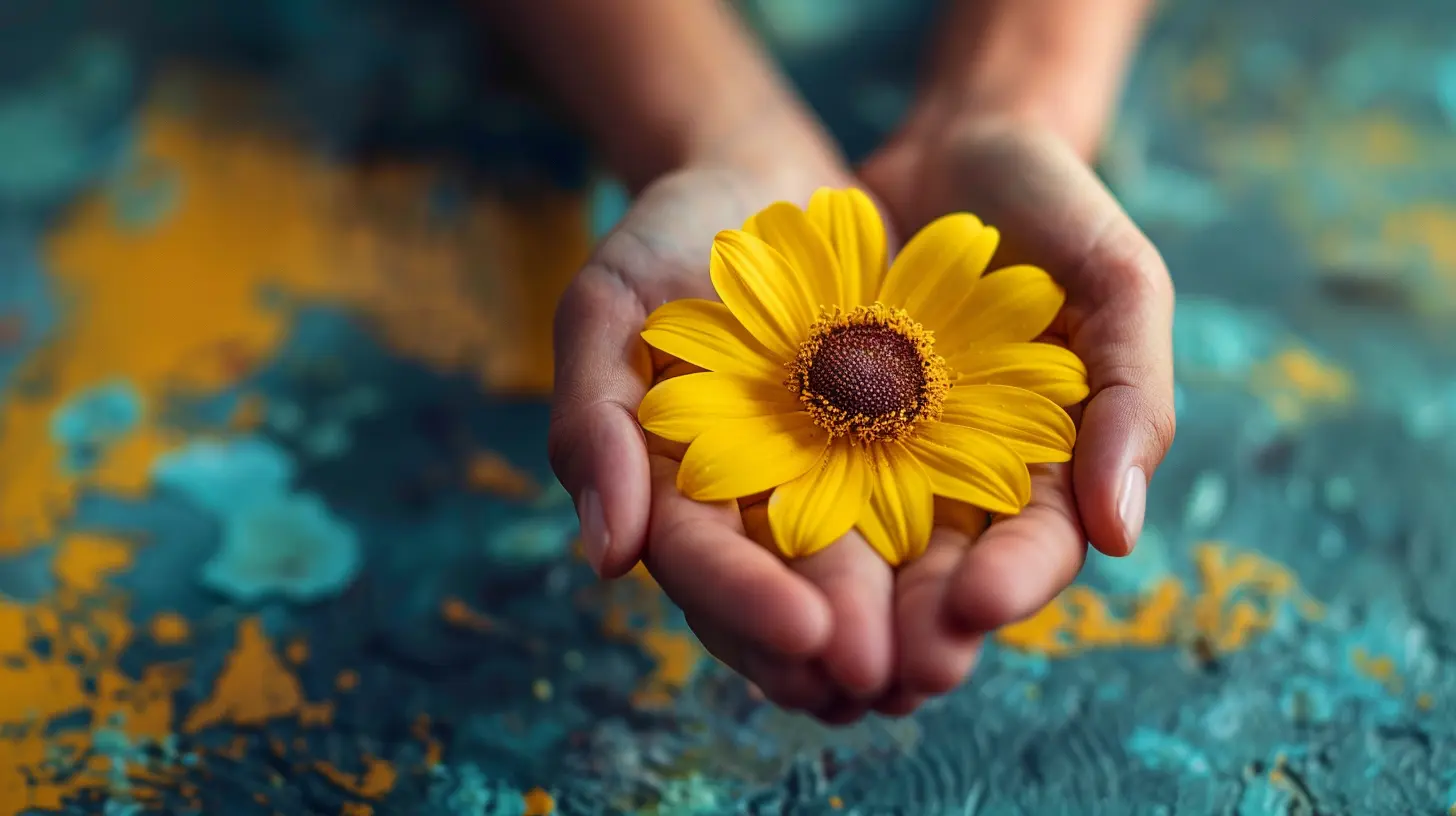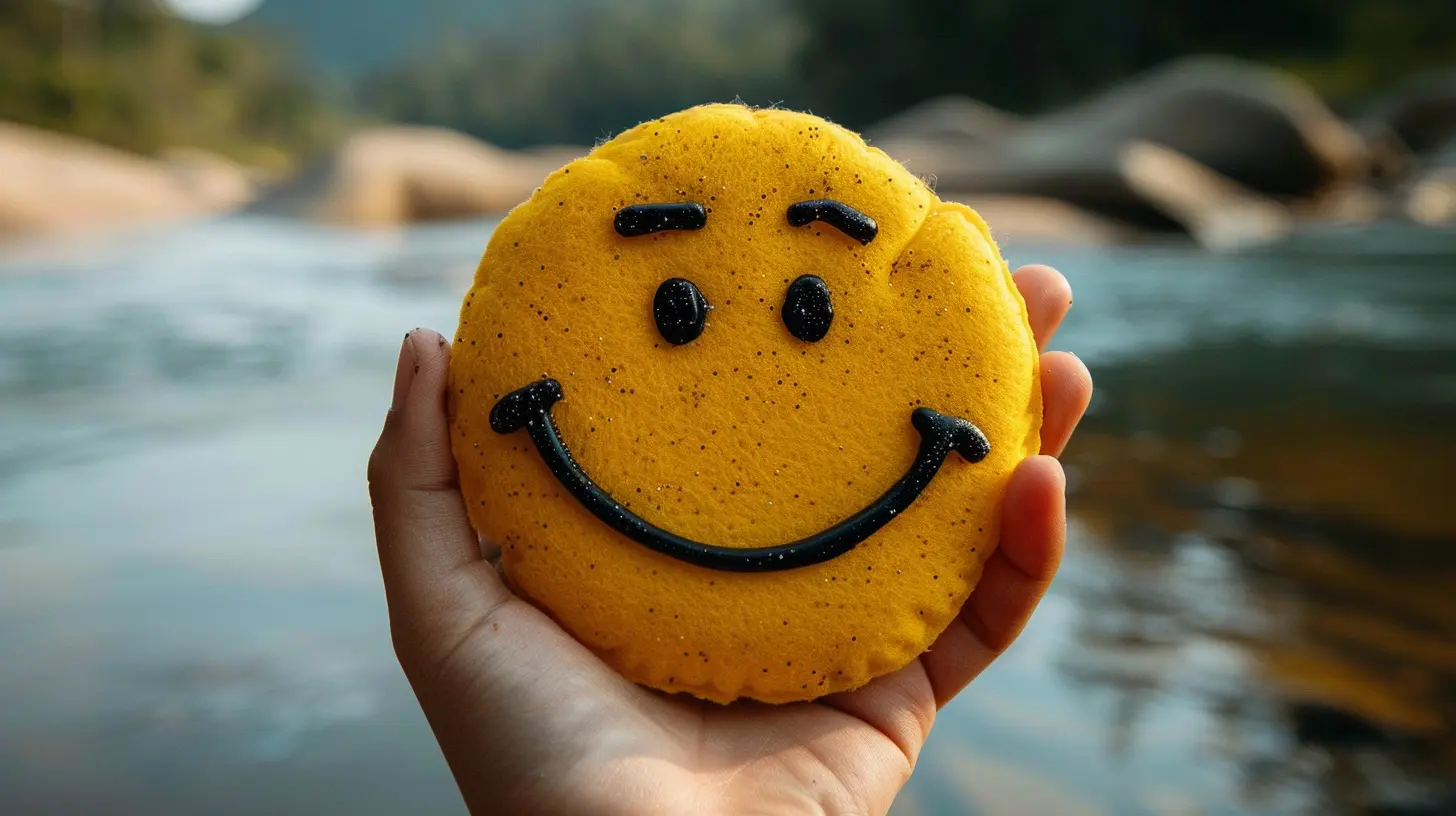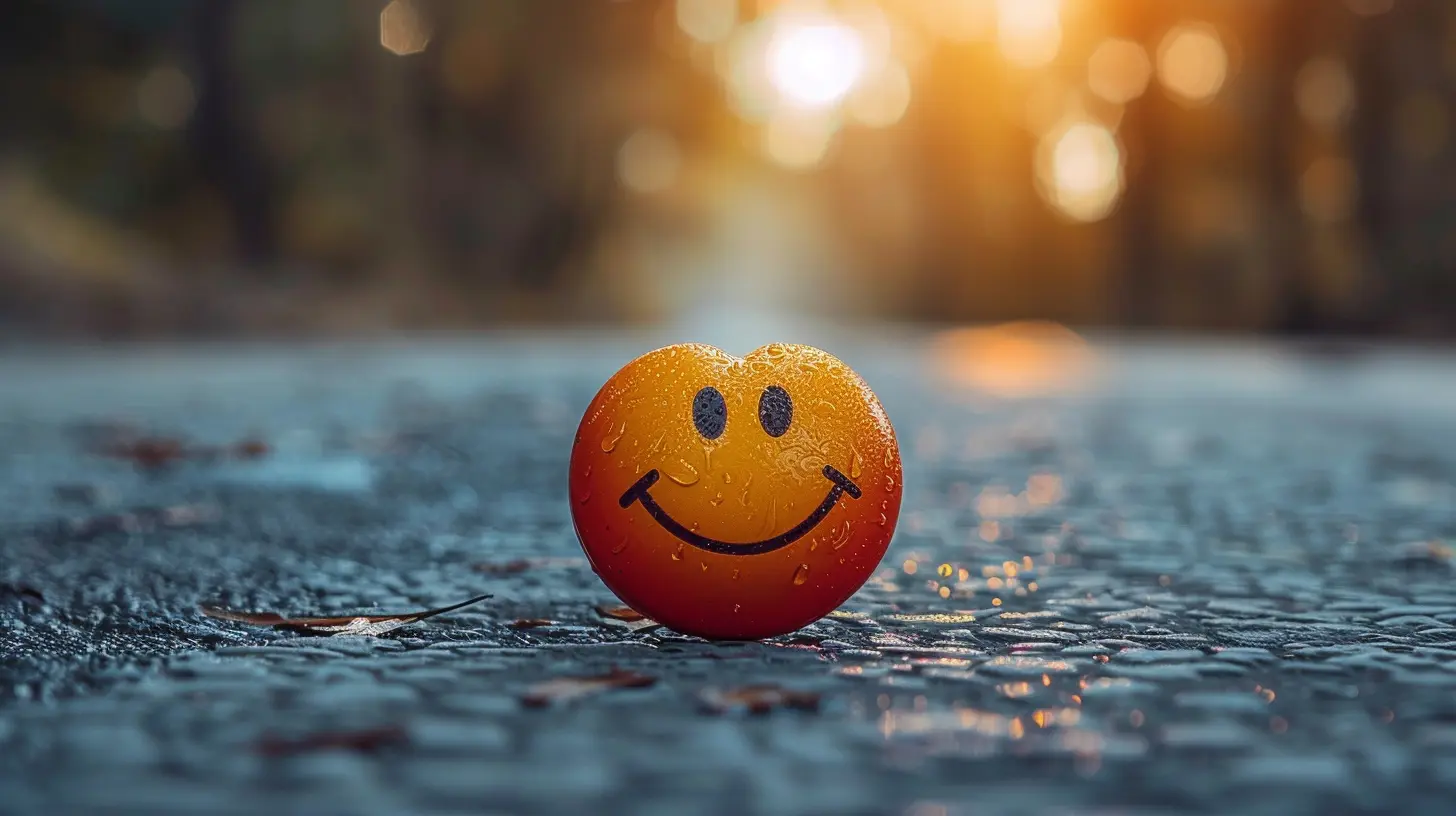How Acts of Kindness Boost Your Own Happiness and Health
29 July 2025
Ever held the door open for someone and watched their eyes light up with surprise and thanks? Or maybe paid for the coffee of the person behind you in line, just because you were feeling generous? Those little moments may seem small, but guess what—they're doing wonders for your mind and body. No, really. Science agrees.
In a world of hustle, fast scrolls, and daily stress, kindness is like a secret superpower—a warm cup of cocoa on a cold day. And here's the best part: it's a superpower you already have. You don’t need to buy it or attend a seminar to unlock it. Just do something kind.
Let’s dive into how acts of kindness do more than just spread warm fuzzies—they actually reboot your brain, tickle your happy hormones, and make your body thank you (silently, but sincerely).
Kindness: The OG Mood Booster 🧠✨
Let’s keep it real. Life can be a rollercoaster—some days you're on top of the world, other days you're under the couch eating cereal at 3 PM. But acts of kindness are like little emotional life rafts. They don’t just help others—they help you keep your balance.The Brain Chemistry Behind It All
When you do something kind, your brain basically throws a feel-good party. We’re talking endorphins (those are your natural painkillers), dopamine (the “reward” chemical), and oxytocin (a.k.a. the love hormone).- Dopamine: Gives you that little “zing” of joy.
- Oxytocin: Lowers blood pressure and makes you feel more connected.
- Endorphins: Reduce pain and bring euphoria (yes, like a runner’s high, but without the sweating).
So the next time you compliment a stranger’s outfit, think of it as giving your brain a mini spa day.
Kindness + Health = A Dream Team 🏋️♀️❤️
Okay, you might be wondering: “How does being nice actually affect my physical health? Am I gonna get abs from holding the elevator open?” Not quite—but the benefits are real and science-backed.1. Kindness Reduces Stress (Bye, Cortisol 👋)
Acts of kindness help knock down cortisol levels—that's the stress hormone that likes to hang around when you're juggling 37 things. Studies show that people who regularly practice kindness have lower levels of stress and inflammation. So yes, helping your neighbor carry groceries might help you chill out better than that $5 latte.2. It Can Lower Blood Pressure
Remember oxytocin? That warm, fuzzy hormone also acts like a natural vasodilator. In simple terms: it helps blood vessels relax, reducing blood pressure. Less stress on your heart = a healthier you.3. It Strengthens Your Immune System
When you’re kind, your body releases more serotonin. This neurochemical helps regulate mood, but it also supports digestion, sleep, and—you guessed it—the immune system. So, kindness is basically a multivitamin with no side effects.4. It Helps You Live Longer
Multiple studies have linked altruism and volunteering with increased life expectancy. Turns out, people who give tend to live longer. So maybe you won’t just feel younger at heart—you may actually grow older while staying healthier. Grandma was right: “It’s better to give than to receive.”
Happiness Isn’t Just a Feeling—It’s a Side Effect of Kindness 😊
If you’ve ever volunteered your time, helped a friend move, or just shared your last cookie, you’ve probably felt that subtle internal “ahhh” afterward. That’s happiness bubbling up, uninvited, but always welcome.Helping Others Makes You Feel Useful
Let’s not sugarcoat it: we all want to feel like we matter. Kindness gives us that opportunity. It gives life meaning, and when life has meaning, happiness isn’t far behind.Kindness is Contagious (In a Good Way!)
Ever noticed how one good deed can set off a chain reaction? You pay for someone’s snack, they compliment a coworker, that coworker hugs their kid longer at bedtime. It’s like emotional dominoes, but better.Researchers call this “moral elevation.” Witnessing acts of kindness triggers a warm, uplifting feeling that motivates observers to act kindly themselves. It's emotional peer pressure—of the best kind.
Building Better Relationships, One Kind Act at a Time 🤝💬
Let’s face it, we’re social creatures. We’re made to connect and collaborate—not just binge-watch shows in separate rooms (though, let’s be real, we do that too).Acts of Kindness Reinforce Social Bonds
Every time you're kind—whether it’s helping a friend move, lending a listening ear, or sharing your lunch—you’re strengthening those invisible threads of connection. Strong relationships are one of the most powerful predictors of long-term happiness and life satisfaction.People Like Nice People (Shocking, Right?)
Kindness makes you more likable. It builds trust and makes people want to be around you. You don’t have to be the funniest or the smartest person in the room—just be kind, and people will gravitate toward your vibe like moths to a porch light.But Wait—Is There Such a Thing as Too Much Kindness?
Alright, time for a reality check. Kindness is a beautiful thing, but if you’re constantly giving without refilling your own cup, you’re on the express train to Burnout City.Be Kind, Not a Doormat
Boundaries matter. You can say no and still be a kind person. Think of it like being on a plane: put your oxygen mask on first before helping others. Your well-being isn’t selfish—it’s essential.Practice “Smart Kindness”
This means being intentional with your kindness. Don’t just give to give—give because it aligns with your values, your energy level, and your emotional bandwidth. It’s quality over quantity, people.Easy Ways to Sprinkle Kindness Into Your Daily Routine 🌱
Feeling inspired but not sure where to start? I've got you.Quick Acts of Kindness That Take Less Than a Minute:
- Smile at a stranger. (Yes, with your eyes too.)- Send a random “thinking of you” text.
- Hold the door open for someone.
- Let someone merge into your lane (without muttering under your breath).
- Compliment your barista’s latte art.
Bigger Acts That Make a Big Impact:
- Volunteer at a local shelter or community group.- Donate to a cause that hits close to home.
- Mentor someone who’s just starting out.
Remember, kindness doesn’t have to be headline-worthy. It just has to be genuine.
But What If I’m Not Feeling Very Kind Today?
That’s okay. We’re not robots programmed to be cheerful 24/7. Some days, you’re the kind one. Other days, you’re the one who needs kindness.Kindness isn’t about perfection. It’s about intention. And honestly, sometimes just choosing not to be a jerk is an act of kindness in itself.
Final Thoughts: Be Kind, Rewind… Your Brain
In a fast-paced world filled with chaotic news cycles and overflowing inboxes, kindness is like hitting the pause button and saying, “You know what? I’m going to be human today.”It’s free. It’s painless. And it’s wildly effective at making your life better—mentally, emotionally, and physically.
So go ahead—spread kindness like confetti. Your brain, your body, and your happiness will thank you. And who knows? You might just start a chain reaction that makes someone else’s day a whole lot brighter.
all images in this post were generated using AI tools
Category:
Positive PsychologyAuthor:

Ember Forbes
Discussion
rate this article
1 comments
Fennec McQuade
Kindness enriches both giver and receiver—let compassion be your daily practice!
August 19, 2025 at 2:34 PM

Ember Forbes
Absolutely! Practicing kindness not only uplifts others but also enhances our own well-being. It’s a win-win for happiness and health!


